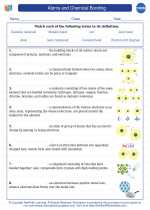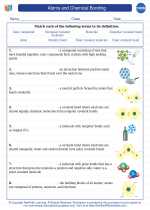Brittleness in Materials
Brittleness is a property of materials that describes their tendency to fracture or break without significant deformation under stress. It is an important characteristic in various fields, including engineering, materials science, and manufacturing. Understanding brittleness is crucial for designing and selecting materials for specific applications.
Causes of Brittleness
Brittleness can be caused by several factors, including:
- High levels of impurities in the material
- Crystal structure and bonding within the material
- The presence of internal defects or flaws
- Low levels of ductility
Impact of Brittleness
Brittle materials are prone to sudden and catastrophic failure, which can be dangerous in certain applications. Understanding the brittleness of a material is crucial for predicting its behavior under stress and designing structures or devices that can withstand such conditions.
Testing Brittleness
There are various methods for testing the brittleness of materials, including tensile tests, impact tests, and hardness tests. These tests help in determining the material's ability to resist fracture under different types of stress.
Preventing Brittleness
Several techniques can be employed to reduce the brittleness of materials, such as:
- Adding alloying elements to improve ductility
- Optimizing the material's microstructure to reduce the presence of flaws
- Using heat treatments to relieve internal stresses
- Choosing different materials with higher toughness for specific applications
Study Guide
To study brittleness in materials, it is important to understand the underlying principles of material science and the factors that contribute to brittleness. Key topics to focus on include:
- The relationship between brittleness and other mechanical properties such as ductility and toughness
- The impact of crystal structure and bonding on the brittleness of materials
- Case studies of brittle materials and their failure mechanisms
- The role of testing methods in evaluating the brittleness of materials
- Strategies for improving the ductility and toughness of materials to mitigate brittleness
Understanding brittleness is essential for anyone working with materials, from engineers and scientists to manufacturers and designers. By studying this topic, you will gain insights into the behavior of materials under stress and learn how to select and modify materials to enhance their performance and reliability.
.◂Chemistry Worksheets and Study Guides High School. Atoms and Chemical Bonding

 Worksheet/Answer key
Worksheet/Answer key
 Worksheet/Answer key
Worksheet/Answer key
 Vocabulary/Answer key
Vocabulary/Answer key
 Vocabulary/Answer key
Vocabulary/Answer key
